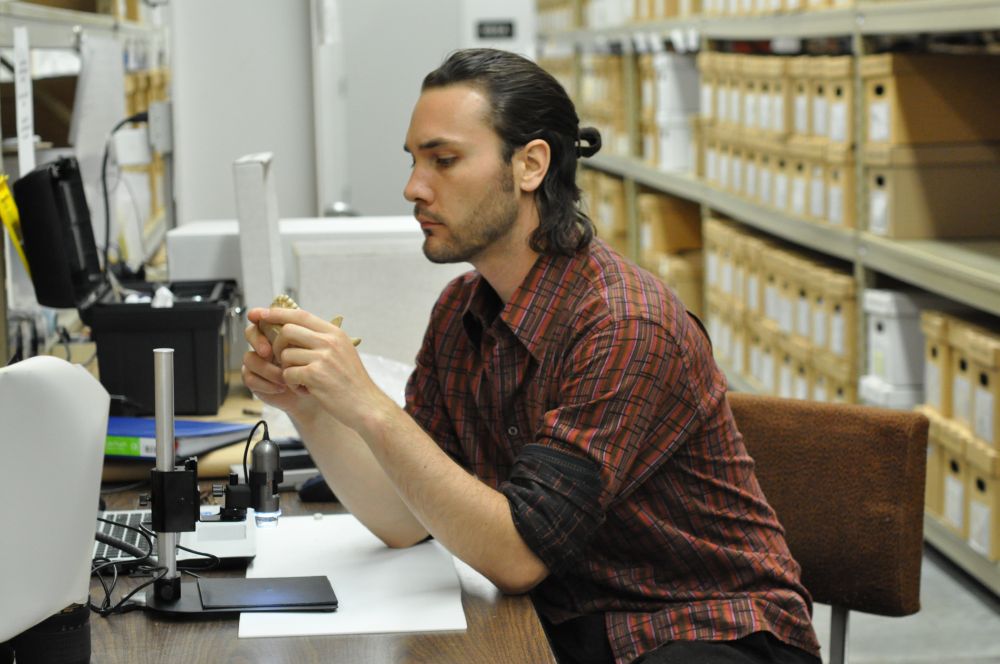Anthropology Research Grants – Conducting an Anthropology research usually require a quite hefty amount of fund. It is used to pay many expenses during the research such as for accommodation, transportation, daily expenses, data analyst and so on.
Most of anthropology researchers, especially ones who just start researching in the field of science, can’t afford to pay all of the cost using money from their own pocket. For such situation the best solution is to look for Anthropology research grants.
Looking for research grants to fund their research is common solution for researcher in almost every field of study. The grants are usually awarded by government institution, states institution, or local and national science institution and community with purpose to encourage the science development.
There are also research grants awarded by commercial business as a part of their CSR program. According to E-how.com specifically for Anthropology research grants, the source of the grants are usually from the government, museums, educational institution like universities, as well as science foundations and communities.
List of The Research Anthropology Research Grants Source
In this article we will provide you with information on the source of Anthropology research grants along with their addresses for you to ask further information or maybe to apply for the grants. Here is the list of the research grants source based on information from some trusted websites such as nsf.gov, e-how.com and neh.gov:
The NSF or National Science Foundation
The foundation offers an Anthropology research grants opportunity in form of cultural anthropology research as a part of cultural anthropology program. There is also a biological anthropology program for doctoral students who are about to conduct their dissertation research in all of the subfields of biological anthropology including ecology and adaptability, functional anatomy, osteology and bone biology, bioarcheology and primate behavior as well as human and non human primate genetic variation.
The NSF encourages applicants in specific categories such as minorities, women and persons with disabilities. There is no maximum time for project duration of the research but the project budget has the maximum value of $20,000 in direct costs.
The deadlines for this Anthropology research grants is November 15, 2013, July 15, 2014, and March 16, 2015. Next, submit the proposals before the deadline. For further information about this grant, you can contact here:
- Address: The National Science Foundation, 4201 Wilson Boulevard, Arlington, Virginia 22230
- phone: 703-292-5111
- website: nsf.gov
Wenner Gren Post-PhD Research Grant
This grant funds individual research projects for doctorates in anthropology or other relevant fields. The goal of this program is to support significant work that deepens our understanding of to be human. This grant allows any methodology, topic, research location, and subfield.
The Foundation welcomes proposals that integrate two subfields or more. The priority of this research grant is on the new approaches or ideas related to anthropology.
Qualified applicants:
- Doctorates in Anthropology
- Doctorates in relevant fields
- Independent scholars
Wenner Gren Engaged Research Grant
This is a program to support research partnerships that strengthen those who have been studying related to anthropological research. The partnerships will bring scholars and interlocutors together to understand more about anthropological knowledge, support equality, and support the communities.
The program also supports projects that bring a significant contribution related to anthropological conversations based on engagement and collaboration. Besides, the research must involve ethical relationships.
As the researcher, you must acknowledge the impact of interlocutors. Engaged Research Grants fund research project further, not only by involving the interlocutors in this research. But they must have an active role to determine the explored problems.
This grant program expects projects with greater opportunity when it comes to a partnership, starting with the research questions, the data gathering, the skill sharing, and the communication to public mobilization. In addition, engaged research happens in a broader setting, such as communities, government offices, courtrooms, and laboratories.
Qualified applicants:
- Individuals with PhDs in anthropology and relevant fields
- Students enrolled in a doctoral degree or equivalent from the outside U.S.
- Individuals of all nationalities
Senior Research Grant – Indian Academy of Science
The Indiana Academy of Science is conducting a new application system for grant by using Google Form, not traditional drop box system.
The Indiana Academy of Science Senior Research Grants Program creates awards of more than $3000 to the selected Academy members or students. They can use this award for purchasing supplies, supporting travel and field expenses, paying research assistants, and providing other items to start scientific research.
If you want to try this project, you can submit your proposal to the chair of Research Grant Committee in September 15 and March 1, each year. If you have more questions about this grant, send your question via email here: grants@indianaacademyofscience.org
National Institute of Health
There are several programs available for bioanthropological research at all career level. Here are some examples of grants provided by National Institute of Health:
NIH Exploratory/ Developmental Research Grant Award
Known as R21, this project encourages new developmental research by giving support for the initial stages of project development. The funding is limited for two years.
There is combined budget for the direct costs within two-year period, but it is not more than $275,000. There should be no preliminary data required for this grant.
NIH Academic Research Enhancement Award (AREA)
This program supports projects in research, especially in biomedical and behavioural sciences implemented by undergraduate or graduate students. This program also supports biomedical or behavioural sciences research conducted by faculty in the institutions of higher educations that never been the major recipient of research grant funds from NIH.
This grant has limited qualification, but provides direct cost for up to $300,000 for the entire project period. The limit of project period is up to 3 years.
NIH Small Grant Program
This grant offers limited funding for individuals who need financial help for a short period of time. The purpose is to support various projects, such as pilot or feasibility researches, collecting preliminary data, secondary analysis of current data, or developing of new research.
The grant has limited funding, which is for two years, with the direct cost for up to $50,000 annually. Besides, this grant is not renewable.
For more information about NIH grant program, check here: https://grants.nih.gov/grants/funding/funding_program.htm
The National Endowment for the Humanities (NEH)
The institution offers a cultural anthropology and archaeology research as part of Collaborative Research Grant program. The grant awarded varied from $25,000 to $100,000 (in 2010). The grants are awarded for U.S citizens, non-profit organization, eligible non-citizens and government agencies.
For further information about this Anthropology research grants or if you are interested in applying for the grant you can visit the NEH at this address: National Endowment for the Humanities, 1100 Pennsylvania Avenue NW, Washington, DC 20506 or you can also contact them by phone at 1-866-372-2930 or visit their website at neh.gov.
References:
- SBE Doctoral Dissertation Research Improvement Grants. nsf.gov/sbe/bcs/phys/suppdiss.jsp
- Undergraduate Research. sas.upenn.edu/anthropology/content/undergraduate-research
- Images: bas.americananthro.org




